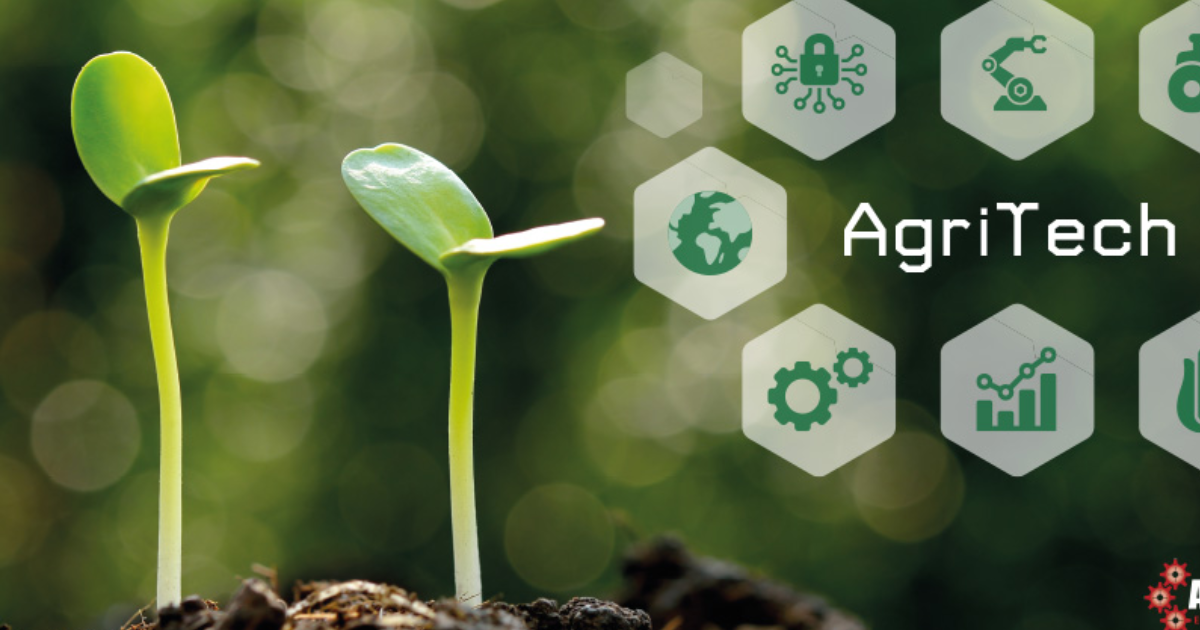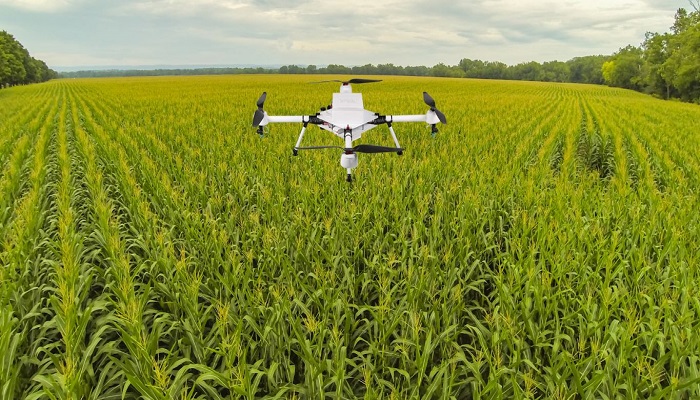THE ROLE OF AGRITECH IN ENSURING FOOD SECURITY IN NIGERIA

With Nigeria’s population growing at a rate of 3.1% per year and expected to reach 400 million by 2050 according to UNFPA, enhanced agricultural productivity through the adoption of agritech; new technologies, and innovation is required to ensure food and nutrition security, particularly for the poor and vulnerable.
This is critical due to the ongoing rise in food prices in Nigeria as a result of the ravaging flood – which affected approximately 34 states to varying degrees, displacing over 1.4 million people, killing over 603 people, damaging 82,035 houses and several critical national infrastructures, and washing off approximately 332,327 hectares of farmland – and the high inflation resulting in about 25.3 million Nigerians across 26 States of the federation and the Federal Capital Territory (FCT) being projected to face nutrition and food insecurity between June and August 2023 as reported by Leadership Newspaper.
According to the same source, the 2022 October Preliminary Food Security and Nutrition Analysis (Cadre Harmonise CH) results released by the Federal Ministry of Agriculture and Rural Development stated that about 17 million people in 26 States and the FCT, including IDPs and returnees, were expected to be in phase 3 of the crisis or worse through October-December, 2022.
Nigeria Spends $22 Billion annually on Food Import

It may interest you to know that Nigeria spends $22 billion annually on food importation according to reports. For instance, between 2016 and 2019, Nigeria’s total agricultural imports were N3.35 trillion, which was four times higher than agricultural exports of N803 billion during the same period.
Although over 70% of Nigerians work in agriculture, the majority of them are subsistence farmers. The sector is currently overstretched due to a deficient land tenure system, low irrigation farming levels, climate change, and land degradation. Other factors include a lack of improved processing facilities, low farm productivity, poor post-harvest handling and storage, expensive and limited access to inputs (high-quality seeds, fertilizer, and crop protection products), insufficient market information, a lack of capacity to meet quality standards, and limited distribution networks. This has harmed productivity, resulting in low income for farmers and high food prices for Nigerian consumers.
These challenges have continued to impede the country’s ability to feed itself despite its vast hectares of uncultivated arable farmlands. It has also hindered it from contributing significantly to the country’s GDP, which in turn hurts living standards, quality of life, and nutrition of the populace, as captured in data from the Nigeria Bureau of Statistics (NBS), which shows that an average Nigerian spends more than 57 percent of their income on food alone. (Transportation: 6.4%, Health: 6.2%, Education: 5.9%, Services: 5.5%, Rent: 5.2%, Fuel: 5.1%, and Entertainment: 1.07%) Furthermore, the World Bank estimates that rising food prices will push an additional 6 million Nigerians into poverty.
Nigerian Agritech Ecosystem
Agritech startups have made quick inroads into the continent’s most populous country and largest economy. This is primarily in response to the country’s production deficit and growing concern about food insecurity. These startups use cutting-edge technologies such as automated irrigation, soil sensor drones, and digital systems to help farmers acquire knowledge, financing, market access, insurance, and inputs. As a result of this, Nigeria has emerged as one of the most vibrant agritech markets in Sub-Saharan Africa, attracting funders and support organizations from around the world.
Furthermore, funding for African Agritech startups has increased rapidly in the last five years. According to Venture Africa, the African agri-tech space received $95,101,000 in funding last year, accounting for 4.4 percent of total funding for African tech startups, a 58.5 percent increase from $59,990,000 (8.6 percent of the total) in 2020. This represents an increase from the 23.7 percent of $48,499,000 recorded in 2019.
In addition, in the first half of 2022, Nigerian agritech startups received $60.9 million (Thrive Agric – $56.4 million and Hello Tractor – $4.5 million) of the $113.9 million raised by six African agritech startups that announced funding in 1H 2022.
Some Leading Agritech Startups in Nigeria
Currently, there are several agritech startups such as Farmcrowdy, Thrive Agric, AgroMall, Hello Tractor, and Crop2Cash, among others, who are offering innovative digital solutions to address Nigeria’s agriculture problems. These firms have launched digital solutions that aim to improve farmers’ access to markets, finance, assets, and actionable data-driven information.
Nigerian agritech has enormous potential to help the country reach a significant milestone in food production. Agritech improves the efficiency and productivity of farmers’ activities. It increases yields and allows them to compete in terms of pricing with the rest of the world. However, for these gains to be all-encompassing and translate into food security, reduced reliance on imports, and increased local investment in agriculture, the government must take the bull by the horns by providing the necessary infrastructure as well as creating an environment conducive to agricultural technology startups to thrive.
